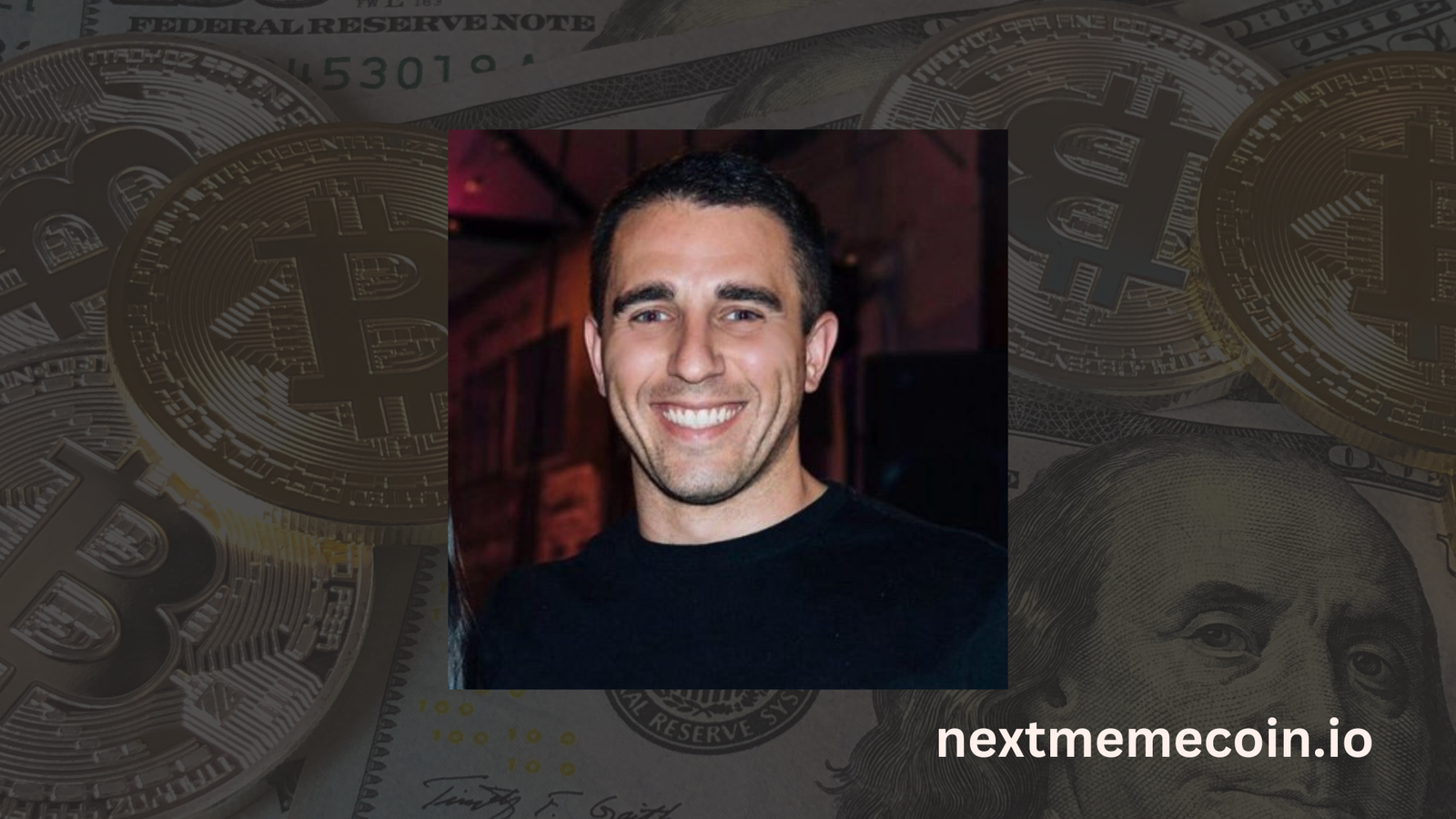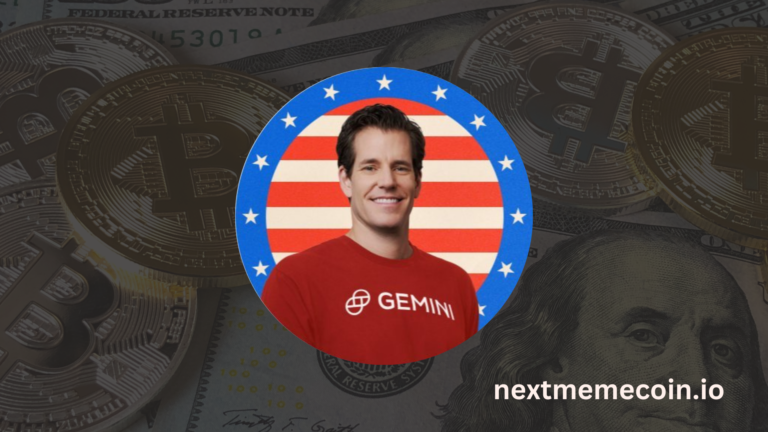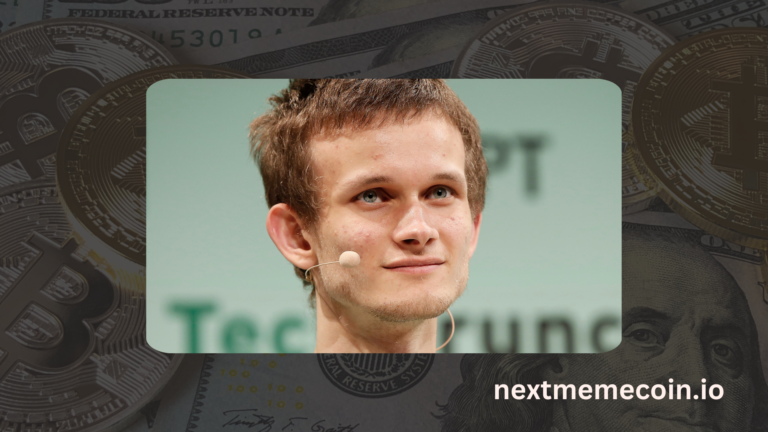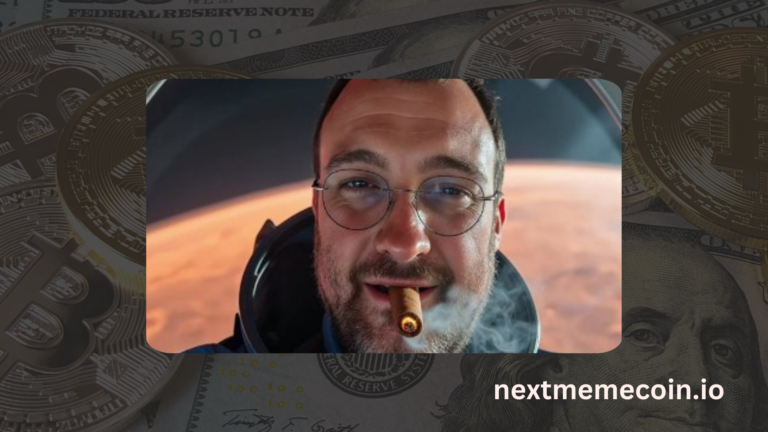Who is Andreas Antonopoulos? Bio, Net Worth & Bitcoin Wisdom
Andreas Antonopoulos stands as a towering figure in the cryptocurrency landscape—a British-Greek technologist whose voice has rung out like a clarion call, cutting through the noise of a chaotic, fast-evolving space. He’s not a billionaire founder raking in profits from a flashy exchange, nor a trader chasing the next pump-and-dump scheme. Instead, he’s a teacher, an author, and a relentless evangelist who’s dedicated over a decade to unpacking Bitcoin’s complexities for anyone willing to listen. For those just stepping into the crypto world, Antonopoulos is the guide you didn’t know you needed—a sherpa who’s navigated the peaks and valleys of blockchain’s wild frontier, illuminating its promise with a clarity that’s both profound and approachable.
This isn’t a story of overnight riches or corporate conquests. It’s the tale of a man who stumbled across Bitcoin’s white paper in 2012, saw a revolution brewing, and traded a comfortable tech career for a mission to educate the masses. From speaking to sparse crowds in dimly lit rooms to penning books like Mastering Bitcoin that have become sacred texts for coders and enthusiasts alike, Antonopoulos has built a legacy not measured in dollars but in influence. In this guide, we’ll take a deep dive into his life—his journey from London’s streets to Bitcoin’s frontlines, the wealth he’s accrued through passion rather than profiteering, and the wisdom that’s made him a sage in a space often clouded by hype. We’ll keep it simple, grounding it in the latest USD figures as of March 24, 2025, so you can see the stakes and the scale. Whether you’re new to crypto or just curious about its roots, this is your roadmap to understanding who Andreas Antonopoulos is and why his Bitcoin wisdom resonates so deeply.
From London to Crypto Crusader: Andreas Antonopoulos’s Bio
Andreas Markos Antonopoulos was born in 1972 in London, England, to Greek parents whose roots stretched back to the Mediterranean. His early life was shaped by a blend of cultures—British pragmatism and Greek resilience. As a child, he moved with his family to Athens during the Greek Junta, a military dictatorship that gripped the country from 1967 to 1974. Those turbulent years left an imprint—a firsthand glimpse of centralized power gone awry, a seed that would later bloom into his passion for decentralization. By age 10, he was back in London, and a pivotal moment arrived: his parents brought home a computer. It wasn’t just a toy; it was a portal. Young Andreas taught himself to code, spending hours unraveling the logic of BASIC and dreaming up programs.
By 14, he’d written dispatch software for taxi systems—a nod to his fascination with how things move and connect, a thread that would weave through his career. School wasn’t his forte; he was a tinkerer, not a textbook disciple. Still, he excelled enough to land at University College London (UCL), one of Britain’s top schools. There, he earned a Bachelor’s in Computer Science, followed by a Master’s in Data Communications, Networks, and Distributed Systems. UCL was a proving ground—surrounded by brilliant minds, he honed his skills in cryptography, networking, and the emerging internet, laying the technical bedrock for what was to come.
After graduating in the mid-1990s, Antonopoulos didn’t chase a corner office. He dove into the tech trenches—first as a freelance consultant, helping firms wrestle with open-source networks when “open source” was still a nerdy niche. By 2003, he’d co-founded Nemertes Research, a tech consultancy, rising to Senior Vice President. There, he studied security’s messy reality, arguing that complexity—not hackers—was the real enemy of robust systems. He spent eight years dissecting enterprise tech, advising CIOs, and publishing papers, building a reputation as a sharp, forward-thinking analyst. But by 2011, the corporate grind felt stale. He went freelance again, chasing freedom over stability.
Then came 2012—the year Bitcoin flipped his world upside down. Antonopoulos stumbled across Satoshi Nakamoto’s white paper, a nine-page manifesto that promised a peer-to-peer cash system free of banks and borders. It wasn’t just code; it was a philosophy, a rebellion against centralized control that echoed his Greek Junta days. He was hooked. Overnight, he ditched paying gigs to become Bitcoin’s unpaid apostle Paul—speaking at meetups, writing blog posts, advising startups like Blockchain.info, where he briefly served as Chief Security Officer in 2014. Those early talks were brutal—five people in a room, half asleep—but he kept going, fueled by a belief that Bitcoin could rewrite the rules of money.
His breakthrough came with Mastering Bitcoin, published in 2014 by O’Reilly Media. Aimed at developers, it dissected Bitcoin’s guts—blockchain, mining, wallets—in plain English, becoming a must-read for coders diving into crypto. The book’s success spawned a speaking circuit—keynotes at Bitcoin 2013, Coinscrum, even Senate hearings in Canada and Australia. He followed with The Internet of Money, a three-volume series (2016–2018) that distilled his talks for non-techies, and Mastering Ethereum (2018), co-authored with Gavin Wood. His YouTube channel, launched in 2013, now boasts over 308,000 subscribers and 15 million views, while his podcast, Speaking of Bitcoin (originally Let’s Talk Bitcoin), has churned out 500+ episodes. On X as @aantonop, his 500,000+ followers hang on his takes—sharp, witty, unapologetic.
A defining moment hit in 2017. Bitcoin Cash advocate Roger Ver publicly “bitshamed” him on YouTube, mocking his lack of BTC wealth despite years of advocacy. The community rallied—donations poured in, over 100 BTC, worth $1.5 million at $15,000 per coin then. It was a love letter from fans, a thank-you for his unpaid grind. Now in his 50s, based in the U.S. (exact spot undisclosed), Antonopoulos keeps teaching—Mastering the Lightning Network (2021) with Olaoluwa Osuntokun and René Pickhardt is his latest, alongside YouTube Q&As and Patreon updates into 2025. He’s a crypto elder, still coding, still preaching, still shaping how we see Bitcoin.
Andreas Antonopoulos’s Net Worth: Passion Over Profit
Pinpointing Antonopoulos’s net worth is like chasing a shadow—he’s notoriously private, and no Forbes list tracks him. Still, educated guesses as of March 24, 2025, place him between $10 million and $50 million, a range built on Bitcoin’s rise, book royalties, and speaking fees. Unlike crypto moguls like Changpeng Zhao or Brian Armstrong, his wealth isn’t from founding a billion-dollar platform—it’s a patchwork of early bets and community gratitude, stitched together by a decade of hustle.
Bitcoin’s the core. In 2014, he tweeted that most of his net worth was in BTC, a risky move when it hovered at $600. If he bought in 2013 at $13—his first deep dive year—100 coins cost him $1,300. Today, at $67,500 per BTC (late 2024), that’s $6.75 million. The 2017 donation of 100+ BTC, valued at $1.5 million then, is now worth over $6.75 million if he held it. Add another 50–100 BTC from early advocacy—plausible for a guy who lived Bitcoin—and you’re at $3.4–$6.8 million more. That’s $10–$13.5 million in BTC alone, assuming he’s a “HODLer” (he’s never hinted at selling).
Books are his bread and butter. Mastering Bitcoin, a 298-page beast, retails at $40–$60. If he’s sold 50,000 copies (a conservative guess for a crypto classic), royalties at 10–15% net him $200,000–$450,000. The second edition (2017) and The Internet of Money trilogy (Vol. 1–3, $10–$20 each) likely add another $300,000–$600,000 combined, assuming 20,000–30,000 sales per volume. Mastering Ethereum and Mastering the Lightning Network tack on $100,000–$200,000 each. Total book haul? Maybe $1–$1.5 million over a decade, steady but no jackpot.
Speaking gigs juice the pot. Top crypto speakers pull $10,000–$50,000 per event—Antonopoulos, a headliner at Bitcoin 2014, Devcon, and more, has done hundreds. Say 200 talks at $20,000 average (he’s not cheap), that’s $4 million. Early days were free or low-pay—five bucks and a sandwich—but post-2014, he’s commanded real fees. YouTube’s a trickle—15 million views at $0.50–$5 per 1,000 views (SocialBlade’s range) yields $7,500–$75,000 total. Patreon once brought $5/month from fans; at 500 backers, that’s $30,000 yearly, though he’s scaled it back.
Before crypto, he wasn’t flush. In 2013, he sold a rental property to fund his Bitcoin plunge, admitting to debt on Reddit. The 2017 donation—call it 102 BTC for precision, per X chatter—cleared that, leaving him liquid. No lavish lifestyle here—he’s no yacht guy. If he’s got $13.5 million in BTC, $1.5 million from books, $4 million from talks, and $100,000 from digital scraps, that’s $19.1 million. Double his BTC stash to 300 coins ($20.25 million), and you hit $25–$30 million. The $50 million ceiling assumes maxed-out holdings and sales, but he’s no seller. For beginners, his wealth’s a lesson: it’s modest next to Binance’s CZ, but massive in impact.
Bitcoin Wisdom: Antonopoulos’s Gospel
Antonopoulos’s Bitcoin wisdom isn’t about predicting the next $100,000 peak—it’s about peeling back the layers of why Bitcoin exists. He calls it “the internet of money,” a system where trust isn’t a handshake but a cryptographic proof. In The Internet of Money, he frames BTC as a social revolution—decentralized, borderless, a lifeline for the unbanked in Venezuela or Zimbabwe, where banks fail and currencies collapse. “Money is a language,” he says in a 2016 talk, “and Bitcoin’s the first dialect that doesn’t need a king.” It’s not just cash; it’s power shifted to the people.
His security mantra—“Not your keys, not your crypto”—is gospel for a reason. In a 2018 YouTube Q&A, he broke it down: if an exchange holds your BTC, it’s their BTC. Mt. Gox’s 2014 collapse—850,000 BTC lost—drilled this home; he’d warned of centralized risks years prior. He pushes self-custody—hardware wallets like Trezor or Ledger—over trusting Coinbase or Binance. “Bitcoin’s not a bank,” he told Canada’s Senate in 2014, urging regulators to let it breathe. Overreach, he warned Australia’s Senate, could strangle a tech that’s “not about crime—it’s about control.”
He’s a Bitcoin maximalist with a twist. He loves its neutrality—BTC doesn’t care who you are—but knocks its energy hog (1% of global use, like Norway’s grid). In a 2017 talk, he debunked the “Bitcoin boils the oceans” scare: “It’s inefficient by design—security costs.” Ethereum gets a nod—Mastering Ethereum proves it—but he’s wary of DeFi’s centralized choke points (think hacks like Poly Network’s $600 million loss). Privacy’s his hill—2020’s “Schnorr Signatures” video pushed BTC upgrades like Taproot, live since 2021, for efficiency, not Monero-style cloaking. “Bitcoin’s not anonymous; it’s pseudonymous,” he clarified in 2023, urging users to learn its limits.
His talks—like “Blockchain vs. Bullshit” (2018)—are masterclasses. He blends tech (how miners secure blocks), economics (BTC’s 21 million cap vs. fiat printing), and history (gold’s fall to paper). For beginners, it’s a compass: Bitcoin’s a tool for sovereignty—own it, get it, don’t just chase pumps. His 2015 prediction—“BTC at $10 million if it eats gold’s $8 trillion market”—sounds wild, but he’s playing centuries, not quarters.
After the Spotlight: Antonopoulos’s Quiet Impact
The 2017 donation frenzy—102 BTC, $1.5 million then—could’ve been a peak, but Antonopoulos didn’t cash out for a yacht. He doubled down on teaching. His YouTube churns—last post March 2025 on Patreon hints he’s active, though X quieted since mid-2024. Security rumors swirl—multisig wallets split across continents, per X whispers—but he’s laughed them off: “I’m paranoid, not James Bond.” He’s funded BTC projects via OpenSats ($100,000 in 2020) and mentored coders, keeping his footprint light but deep.
Post-2021, Mastering the Lightning Network tackled Bitcoin’s scaling—faster, cheaper payments via off-chain channels. He’s no hype man—called out 2021’s NFT bubble on X: “Speculation, not utility.” At 53, he’s a crypto elder statesman—less TED Talks, more Q&As from home, still shaping discourse. His influence isn’t loud now; it’s foundational, like concrete curing under a skyscraper.
Lessons for Crypto Newbies
Antonopoulos’s journey is a goldmine for rookies. First, knowledge is king—he built a legacy explaining BTC, not trading it. Second, early faith pays—he saw its soul at $13 when others scoffed. Third, security’s sacred—lose your keys, lose your stack. Fourth, patience wins—he’s held BTC through crashes, preaching long-term over quick flips. Grab $10 of BTC on Coinbase, watch his “Bitcoin for Beginners” (2017, 1.2 million views), and feel the shift. He’s not a billionaire—he’s a beacon, proving crypto’s about empowerment, not just bank accounts.
FAQs About Andreas Antonopoulos and Bitcoin
Who is Andreas Antonopoulos?
A British-Greek Bitcoin advocate since 2012, author of Mastering Bitcoin, and educator who’s taught millions about crypto.
What’s Andreas Antonopoulos’s net worth?
Roughly $10–$50 million—BTC (150–300 coins, $10–$20 million at $67,500), books ($1–$1.5 million), talks ($4 million).
Why’s he a Bitcoin legend?
He spoke to empty rooms at $80, wrote BTC’s tech bible, and orange-pilled the world with clear, passionate insight.
What’s his top Bitcoin advice?
“Not your keys, not your crypto”—own your coins, grasp the tech, see BTC as freedom, not a lottery ticket.
Does he own other cryptos?
Mostly Bitcoin—ETH’s a side note, but he’s a BTC maximalist betting on its decentralized core.
Conclusion
Andreas Antonopoulos is Bitcoin’s quiet giant—a coder who traded a safe path for a crusade, turning arcane tech into a global epiphany. His bio’s a trek from London’s grit to crypto’s soul, his net worth a humble echo of his reach, and his wisdom a torch for the decentralized dawn. For beginners, he’s your first mentor—proof that crypto’s heart beats beyond wallets, in ideas that endure. Start with his words, hold a satoshi, and see why his voice still guides the way.





